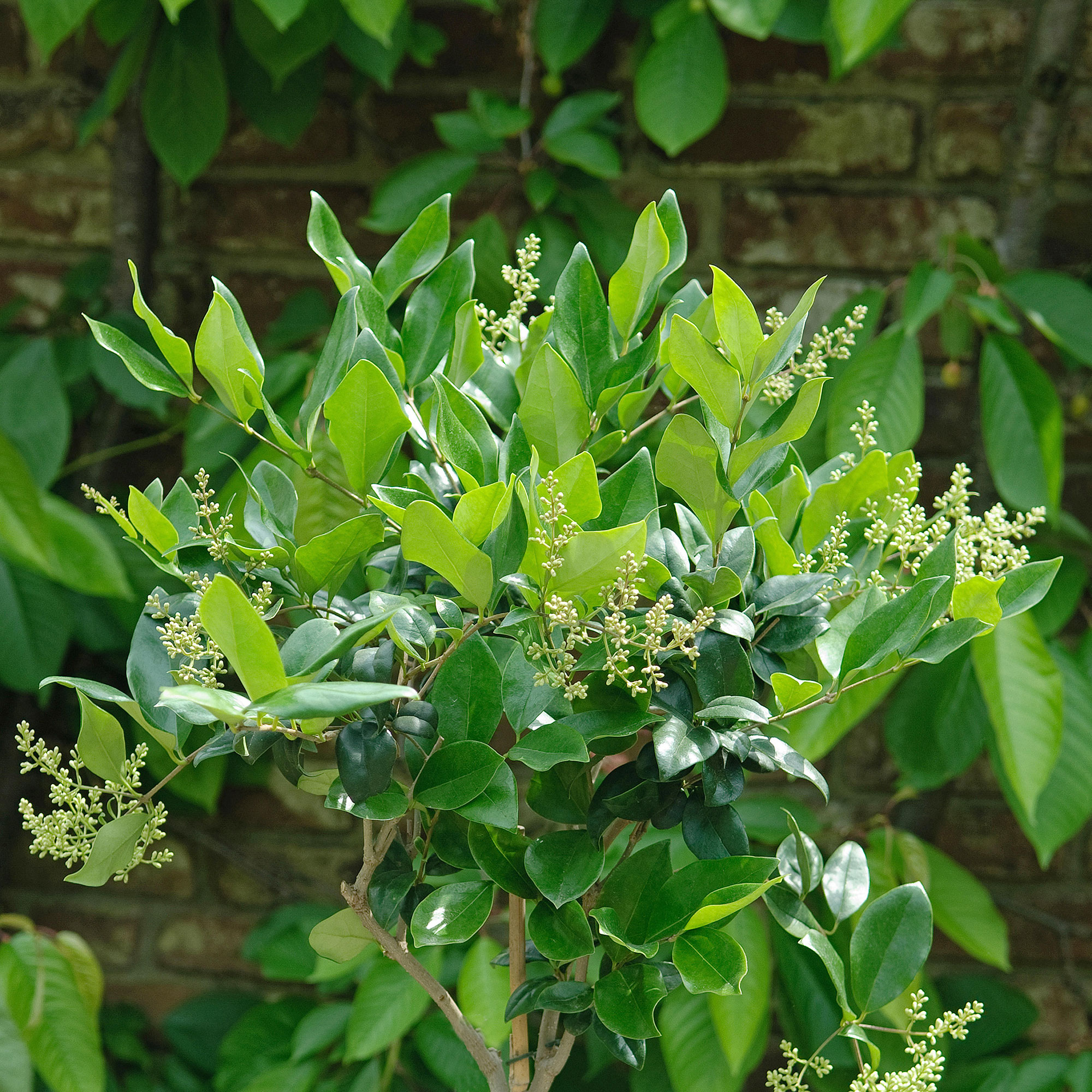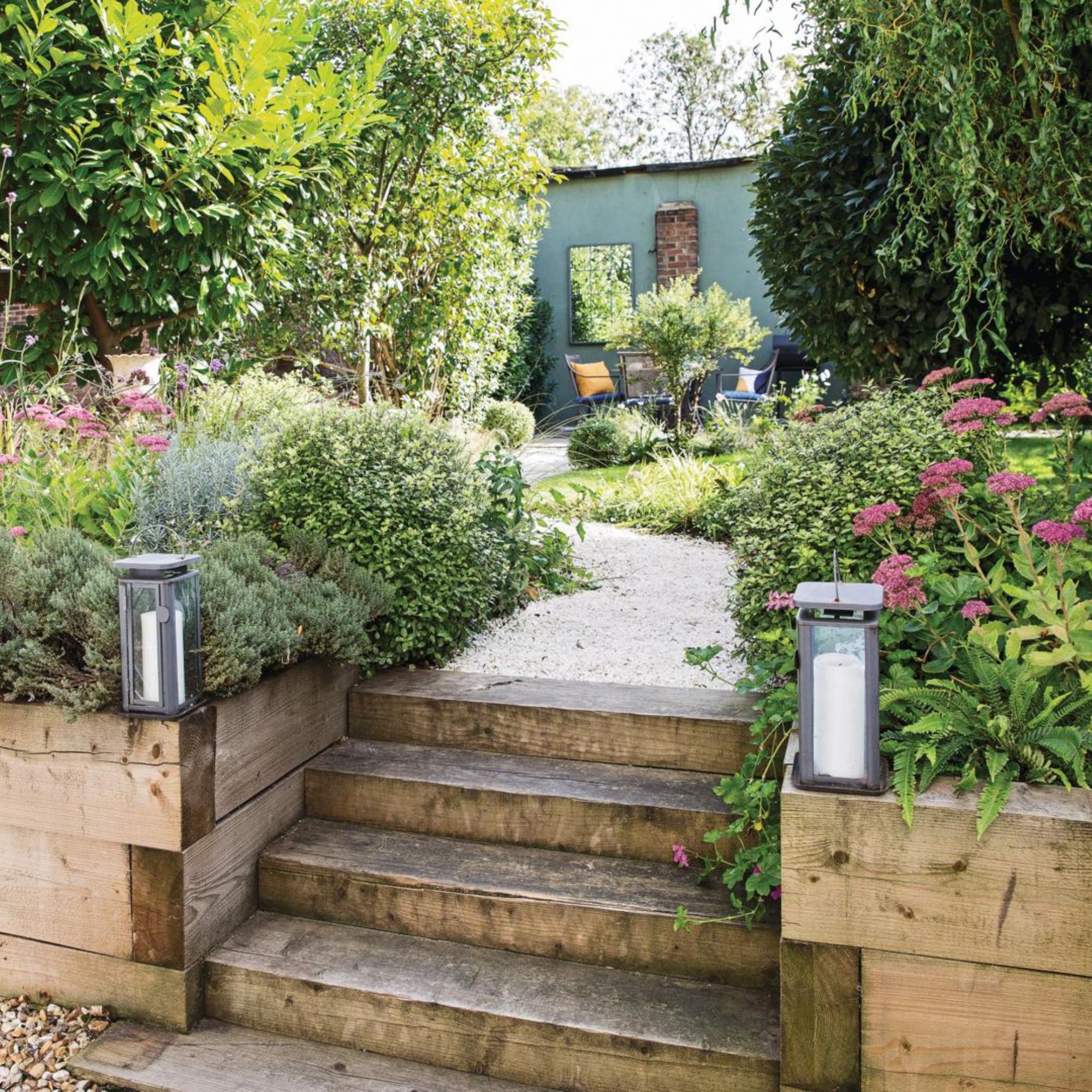
Privacy problems can be a big concern for many when it comes to garden spaces, however, we've just found a pretty way to keep those noisy neighbours that is going viral on TikTok.
Garden screening ideas usually focus on fences, but living options of hedges or small trees can look oh-so-pretty and make a small garden look bigger by blurring the boundaries of the space.
One popular TikTok video has revealed how they turned their garden into a private oasis by swapping a standard hedge for Japanese privet trees, and it turns out they can be a pretty cost-effective option too.
@locationhouseofbeau ♬ Sunny - Remastered - Paul Carrack
According to a popular TikTok video from creator @locationhouseofbeau Japanese Privet trees (otherwise known as Ligustrum japonicum) are a fantastic low-maintenance option for shielding your garden from prying eyes, thanks to their full leaves, and the fact that they can grow up to 6 metres.
Within the video, Carla (the lady behind the @locationhouseofbeau account) explained that the Privet trees are evergreen, meaning that they’ll stay full and leafy throughout the entire year, ensuring you don’t have to compromise on your privacy needs in the winter.
Craig Morley, a gardening expert from Budget Seeds, agreed, explaining that, 'the best trees for privacy screening are evergreen trees, like a Japanese Privet tree.'
They're also great trees for small gardens (as well as bigger spaces) as they won't grow to become overwhelming, and should stay fairly compact in size.
But they undoubtedly look super stylish with their rounded but slightly wild growth, giving you all of the shielding you need from nosy neighbours in a way that looks nice and natural. Plus, many of these Privet trees will also produce small sprays of off-white flowers during the late summer, which is particularly lovely.

When it comes to cost, Carla explained that she paid £130 for each tree and shared that she needed five to cover the length of her garden border, totalling £650. Though hedge prices are around a similar amount, we’d argue that these Japanese Privet trees are a much more stylish and original way to provide some privacy in your garden!
She also explained that Japanese Privet trees are a little bit of a time investment, as they take around two years to grow to the height seen in the video. Experts also explain that can take between five to 10 years to reach their full maturity.
On the cost and time investment of a Privet tree, Craig explains, 'If you are buying a small potted Privet tree, these usually tend to be a more affordable option that cost under £100, but they can take several years to reach full maturity.
'Larger, more mature trees can cost hundreds of pounds each, so they may not be the most affordable solution if you intend to use several at a time.'
But if you’re already in your forever home, we reckon they'd still make for a very worthwhile time investment if you're on the hunt for extra privacy in your outdoor space.
How to care
So if you do decide on this natural privacy screening solution, what’s the best way to care for your Privet trees, to encourage them to be lush and long-lasting?
These types of evergreen trees are fairly hardy and low-maintenance but do need to be maintained fairly carefully to begin with. 'Japanese Privet trees should be grown in well-draining soil that is in the sun or partial shade, and it can live in several different soil types,' Craig says.

'However, once the tree is fully established, it is a relatively low maintenance plant that usually only requires minimal pruning in order to retain its shape and size,' he continued. 'Just avoid excessive pruning as it can slow the tree's growth or potentially kill the plant, and do not cut away any buds as this can affect flowering.'
It’s also important to maintain the area around the base and prevent weeds from growing around the tree (or trees), as this could damage their health.
But if you don't want privet trees, or want to consider the alternatives, Craig explains that there are a few other options for privacy screening foliage. He suggests Italian Cypress trees, saying, 'these are good trees if you are screening a tall building, and can give your garden a mediterranean look.'
Or, Photinia can also be ideal. 'These are evergreen trees or shrubs that will look good all year round, and will produce white flowers in the summer if left unpruned,' Craig says.







